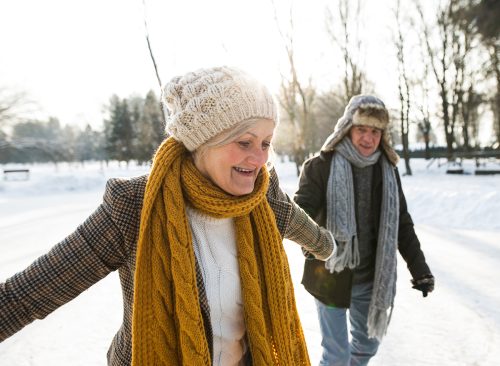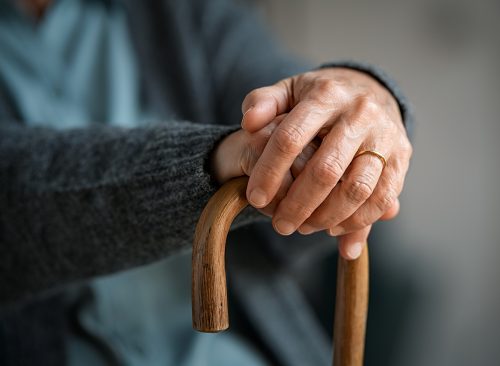10 Surprising Ways Your Life Improves with Age
These surprisingly positive things happen with aging, according to science.

Despite plenty of work by celebrities over 60 and their publicists, aging retains a pretty negative reputation. Although it’s indisputable that the body and mind decline with age, science has found that you have more ability to slow that process than you might realize, and there are positive—perhaps even shockingly good—things that happen with aging. The Telegraph recently detailed some of these surprising ways life improves with age.

“Older individuals tend to favor positive information over negative, directing their attention and memory toward the good, while younger individuals often see the negative first,” Dr. Sophie Mort, clinical psychologist and mental health expert at Headspace, told the news outlet. “This phenomenon of aging has even earned its own name among researchers: ‘the positivity effect.’”

“A superior range of problem-solving skills, particularly those that involve experience and accumulated knowledge, is why even as muscular strength is starting to decline, some sportspeople peak later in life,” the Telegraph reports. A study published in the Journal of Sports Sciences suggests that older athletes have superior decision-making skills under pressure.

A 2020 study of people who had finished 100km ultramarathons found that women peaked at between 40 and 44 and men at 45 to 49, the news outlet reports. A study published in the Journal of Applied Physiology found that endurance athletes older than 40 can maintain cardiovascular fitness levels well into old age.

“Decline in short-term memory and holding and manipulating information in our brains diminishes in our mid-20s, but what we know from bodies of research is that those individuals can become more creative and innovative and have better decision-making skills with age,” said Amy Brann, author of Neuroscience for Coaches and founder of Synaptic Potential.

A 2015 study published in Frontiers of Psychology found that aging seems to have a positive impact on mathematical ability. The researchers posited that a longer lifetime exposure to numbers may lead to stronger skills with numbers.

A 2014 study by psychologist Timothy A. Salthouse found that age-related declines in vocabulary don’t begin until about age 65.

“Some people feel their confidence increase as internalized experiences from young adulthood help them succeed in unexpected and new ways,” says Dr. Katie Hill, a board-certified psychiatrist specializing in aging and CMO of Nudj Health. “Others begin to contemplate their values, prior experiences, transitioning responsibilities, and want to create change to have a more meaningful life. ‘Midlife crisis’ often has a negative connotation, but it really shouldn’t!”

A recent study published in PLOS One found that as people of both sexes age, they place more importance on openness and trust. “Interestingly, those in the older age range placed less emphasis on attractiveness and rated personality much higher than their younger counterparts,” said Dr. Michelle Begy, founder of relationship coaching firm Ignite Dating.

“A wonderful part of middle age is that most people have more autonomy and ability to make change than at earlier life stages,” says Hill. “Leading a values-driven life can be more satisfying and allow for better health and longevity. If there is an area someone wants to improve, create a small goal and work toward it. Achieve it and make a new goal.”
RELATED: Surprising Signs You’ve Already Had COVID

Neuroscientist Daniel Levitin says older generations are happier than younger ones. World Health Organization data from 60 countries indicates that our capacity to feel joy and contentment doesn’t peak until age 82.














